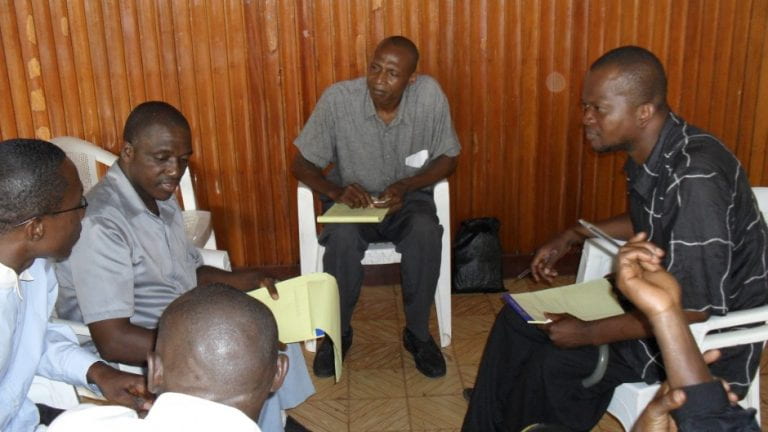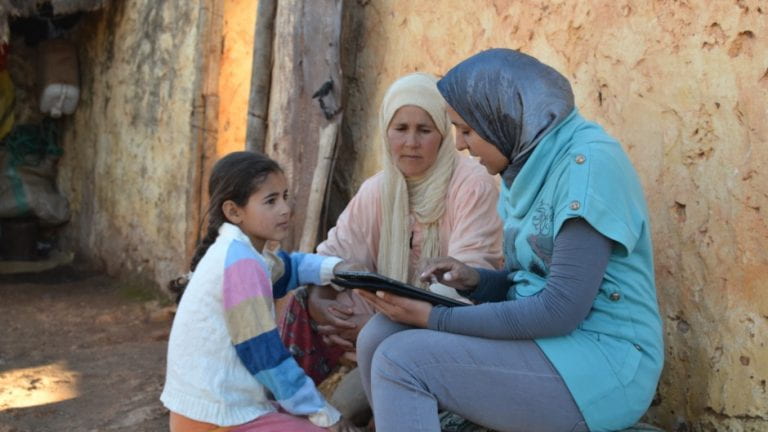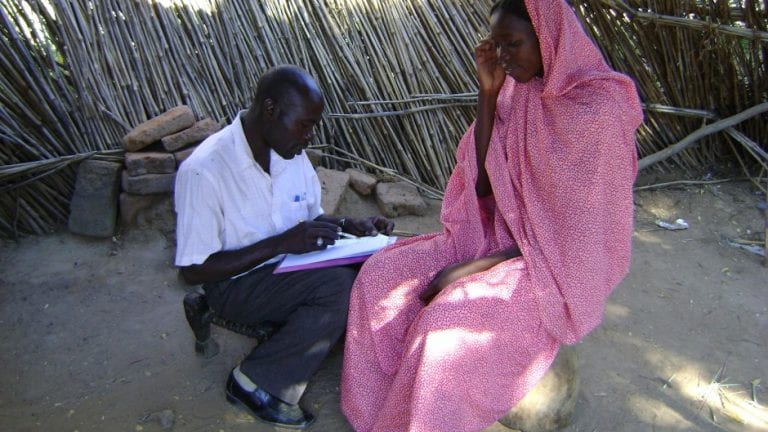
Disability in and around Urban Areas of Sierra Leone
This pilot survey presents a snapshot of the situation in and around urban areas of Sierra Leone for persons with disabilities. It corroborates many of the assumptions held about the lives of persons with disabilities – such as the higher degree of unemployment, limited social participation, difficulty in accessing health care and greater levels of violence and abuse. It also shows low levels of confidence and aspiration among disabled people, such as the many who doubt the value of education for their future.

Disability Poverty and Inequalities in Morocco and Tunisia
There is increasing evidence that persons with disabilities are more likely to be poor than their non-disabled counterpart in most countries. The relationship has been established not only in terms of income but increasingly evidence shows that disability is associated to many other dimensions of deprivation. The present paper presents the multidimensional poverty index (MPI) based on 17 indicators of deprivation collected through household surveys in Morocco and Tunisia.

Home Based Disability Program Impact Evaluation Study
The Home Based Disability Program Impact Evaluation Study was conducted between 2012 and 2016 by the Global Research on Inclusion and Disability team. The study was carried out between January 2012 and June 2016 in 13 provinces of Afghanistan where the program is implemented through four regional offices based in Ghazni (South-Eastern Regional Office), Jalalabad (Eastern Regional Office), Mazar I Sharif (Northern regional Office) and Taloqan (North-Eastern Regional Office) covering each of them several provinces of Afghanistan.
Inclusion in Education (CO-PROMISE)
As discussions proceed on the Sustainable Development Goals (SDG) with regards to defining what constitutes quality education, there is an agreement over the need to understand complex contextual dynamics and better understand how they impact equality. However, although educational policies and structures across various contexts adhere to a central tenet of the flourishing of the child, education processes and outcomes are increasingly organised in terms of standardized levels of achievement of cognitive skills. In order to ensure that quality education remains sensitive to differences in children’s abilities (particularly children with disabilities), it is crucial to decipher the main tenants of exclusion and ensure that the learning outcomes being measures are relevant to the needs and situation of the most vulnerable groups. The Co-Promise research project aims to decipher contexts, processes and mechanisms that operate to maintain exclusion and poverty in Low and Middle Income countries.
Integrated Water, Sanitation and Education Intervention for Internal Displaced People in Settlements of Baidoa Town, South-Central Somalia
Somalia has been in a state of conflict since the 1990s with a collective impact on families, communities, and societies that widely affects their members.
It has been estimated that around 30,000 people continue to live in extremely dire conditions in densely populated scattered Internal Displaced People (IDP) settlements in Baidoa town with no or inadequate access to basic services.

Mental Illness Stigma and Poverty in India
This study was carried out in New Delhi using mixed methods to show that: 1) there is a difference in depth and intensity of multidimensional poverty between mentally ill and non-mentally ill subjects, 2) the association between stigma and multidimensional poverty is stronger in the group of mentally ill subjects compared to the control group.

The National Disability Survey in Afghanistan (NDSA)
The National Disability Survey in Afghanistan, or NDSA, was commissioned by the Afghan government to better grasp the various facets of disability in the country: to better understand those that were visible, and to bring into light those that were often not visible. It aimed to present a comprehensive view of the disability picture in the country, a picture that could, in turn, contribute to a better understanding and recognition of the social diversity of persons with disability in Afghanistan.

Vulnerable Children Study in Darfur
The study aims were: 1)To provide insight into the needs and opportunities of vulnerable children. These may include rehabilitation needs, education needs including special education needs (SEN), employment needs, vocational training, and social integration; 2) To identify what barriers, difficulties and stigmatization these children face in everyday life, especially in accessing school; and 3)To provide strategic guidelines to overcome the main difficulties faced by these vulnerable children.